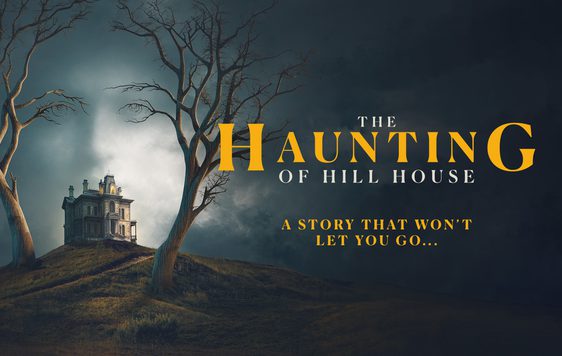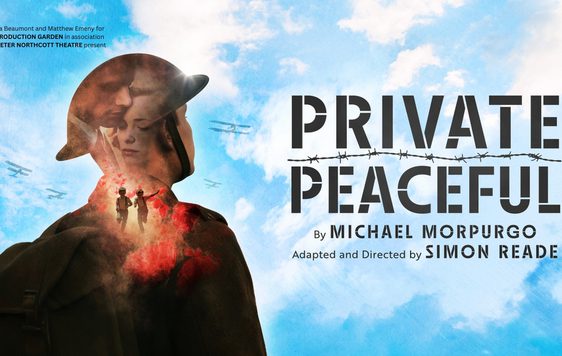The Merchant of Venice: John Douglas Thompson and Arin Arbus in conversation with Ayanna Thompson (Part IV of IV): Staging Merchant
News 9 Dec 2024News Story
AYANNA THOMPSON is a Regents Professor of English at Arizona State University and the Director of the Arizona Center for Medieval & Renaissance Studies (ACMRS). Bio continues at interview end.
This interview was originally published in Theatre for a New Audience's 360 Viewfinder: The Merchant of Venice. Copyright 2022 by Theatre for a New Audience, all rights reserved.
Midway through rehearsals for Theatre for a New Audience (TFANA)'s 2022 production of The Merchant of Venice, Ayanna Thompson of TFANA's Council of Scholars (and a consulting scholar on the production) spoke with director Arin Arbus and actor John Douglas Thompson.
AYANNA THOMPSON Arin, can you tell us about the set design and costumes? What does your near future world look like?
ARIN ARBUS The set designer is Riccardo Hernandez, whom I've worked with on many shows. And we started looking at images of just Venice, actually. And steps in Venice is what we sort of kept coming back to. And then, we were actually looking at red carpet events, strangely, like the James Bond movie premiere, which seems totally insane. But the architecture - I sort of saw it in passing, and the architecture was so similar to the steps in Venice, with this huge red carpet.
And there was something about the fact that it's these sort of fabulous people in the play, these very wealthy, very glamorous people who are behaving in such ugly ways, that felt interesting to me. And then Riccardo was looking at the architecture from the Third Reich, and it actually looks like a James Bond movie premiere, strangely. And the play is so much about hierarchies, so that also felt sort of connected.
And then, we have a wall. The material is concrete, which is what you use to make a wall to divide certain people from other people. But it's also chic. Rich people have concrete floors in their kitchens. And it's eternal, it' ancient, and in 1,000 years, if there are still people around, they will be probably making things out of concrete.
And the costumes are very much of now, they feel very much of the contemporary moment - there's no space suits or anything like that. (laughter) And Emily Rebholz is designing the costumes and she has an amazing eye for clothes, as opposed to costumes. And that's what I hope it will feel like.
AYANNA THOMPSON I love that distinction between clothes and costumes.
ARIN ARBUS Yeah, because this is not about kings and queens, or gods, or heroes. It's about us. It's about the people in the audience.
AYANNA THOMPSON The aural landscape: what does it sound like? Do you have music?
ARIN ARBUS There actually is not very much music in this play. I think we will have music. We're still developing that. I think we'll really hear it in tech for the first time. But I don't think I've ever directed a Shakespeare play with less music than this one.
AYANNA THOMPSON It's back to that language: the language is so spot on that you don't even have to amplify the mood with music or anything, right?
ARIN ARBUS Right. He usually gives you a release, something joyous, or a break from what's going on through music. And in this play, there is not.
AYANNA THOMPSON Speaking of lack of a break, what do you both imagine is Act Six of Merchant of Venice? We've talked about the missing love story for Shylock, the birth of Jessica, the happy times [in Part III]. Where are we in Act Six, after this production?
ARIN ARBUS Well, I think you have a different play for every person because I don't think they're in the same place together. (laughter)
AYANNA THOMPSON Ah, yeah. So, some people are in a comedy, some people are in a tragedy, some are in a history...
ARIN ARBUS Everyone kind of ends up alone. Even the couples, they're isolated from each other. There's nobody who is... In my fantasy world, the sixth act is a reunion between Shylock and Jessica. That's my fantasy.
AYANNA THOMPSON And John, what about for you? Have you thought about where Shylock would be in Act Six?
JOHN DOUGLAS THOMPSON I just purchased this book, it's an old book, it's about Shylock after the end of the play. I haven't read it yet, but the synopsis was, after Shylock is forced through baptism to become Christian, what his life entails moving down that road.
I can see an Act Six where Shylock expires. He gives up. Particularly if Jessica is never coming back. What is there to really live for? I could see that, where Shylock just checks out. It's awfully depressing, of course, because you want to think that you just keep going. But I think the events that have happened in Shylock's life, in these two weeks or whatever, are enough for him to just say, "I'm done."
Or he goes back to the Rialto and making deals again.
AYANNA THOMPSON I was going to say, Venice doesn't work without him as a money lender.
JOHN DOUGLAS THOMPSON Right. But it's different now: how is he being treated by the Christians, and then how is [he] being treated by the Jews? Where is he living? Did he get to move out of the ghetto? Is he moving in a different place? Did he leave Venice and go somewhere else? I don't know. I feel like, certainly, after the courtroom, how do you come back from that? You know what I mean? What is your comeback when they got you like that?
You know the law will never work in your favor. Even though I've become Christian, they can probably say, "You're still an alien, so you don't have the rights of other Christians." So what has that left?
Or I can see an Act Six where he just keeps looking for Jessica, he will not give up the search looking for his daughter. Because he knows when he finds her, he can talk her back home or talk them back into a relationship.
AYANNA THOMPSON Wow. Pretty profound.
So, what do you hope people will bring to the production? And what do you hope they'll take away from the production?
JOHN DOUGLAS THOMPSON Oh, that's a director's question.
ARIN ARBUS I hope that people will come to experience the play, interpreted by this company, with an open heart. That's what I think you always want. I hope that they recognize the limits of the world as it is.
JOHN DOUGLAS THOMPSON A weird part of me wants them to come in with their prejudices and biases and -
ARIN ARBUS They will, John. We don't have to worry about that. (laughter)
JOHN DOUGLAS THOMPSON And if that's the case, then [I hope] they are severely challenged. And that a debate can happen. If not with each other, individually: a dialogue with themselves because they saw something that challenged their preconceptions. And maybe, in the best of all possible worlds, a commitment to do better, to be better, to be open, to be more accepting, to be more tolerant, those kinds of things.
And I think that’s all that an actor has. Sometimes, I look at what I do and say, it’s so frivolous, it’s like making candy, or making a doll. What purpose is this going to have to another human being? But listen, I became an actor because I saw something that moved me profoundly, [August Wilson’s Joe
Turner’s Come and Gone at Yale Rep in 1986]. So, I know this work can change people because it changed me.
That’s why I do it. I always feel like whenever I’m performing, there’s one person that needs something that I have to give, and I have to meet them. If I’m not prepared to fully give within the nature of the work that I’m doing, I’m going to miss them. We’re not going to meet. And they leave without something they needed, and I leave knowing I didn’t give something that I should’ve.
Because when I sat and I watched that August Wilson play, they were doing something for me. It was as if they were performing for me. And maybe
I needed something. I guess I did. And they gave it to me. They gave it to me. So, I think theater, whatever it is we do, can be a gift to others. It really can, I believe in the power of it. So, I hope this will affect people and shift them.
AYANNA THOMPSON I think that’s where we can end, because I think that’s why you’re considered one of the greatest working actors in theater today. It’s the commitment that you bring to your craft, and it’s there every night you’re on stage.
JOHN DOUGLAS THOMPSON Thank you.
AYANNA THOMPSON is the author of Blackface (Bloomsbury, 2021), Shakespeare in the Theatre: Peter Sellars (Arden Bloomsbury, 2018), Teaching Shakespeare with Purpose: A Student-Centred Approach, co-authored with Laura Turchi (Arden Bloomsbury, 2016), Passing Strange: Shakespeare, Race, and Contemporary America (Oxford University Press, 2011) and Performing Race and Torture on the Early Modern Stage (Routledge, 2008). She wrote the new introduction for the revised Arden3 Othello (Arden, 2016) and is the editor of The Cambridge Companion to Shakespeare and Race (Cambridge University Press, 2021), Weyward Macbeth: Intersections of Race and Performance (Palgrave, 2010), and Colorblind Shakespeare: New Perspectives on Race and Performance (Routledge, 2006). She is currently collaborating with Curtis Perry on the Arden4 edition of Titus Andronicus.
In 2020, Thompson became a Shakespeare Scholar in Residence at The Public Theatre in New York. In 2021, she joined the boards of the Royal Shakespeare Company, the Folger Shakespeare Library, the National Parks Arts Foundation, and Play On Shakespeare. Previously, she served as the President of the Shakespeare Association of America, one of Phi Beta Kappa's Visiting Scholars, a member of the Board of Directors for the Association of Marshall Scholars, and a member of the Woolly Mammoth Theatre board.


